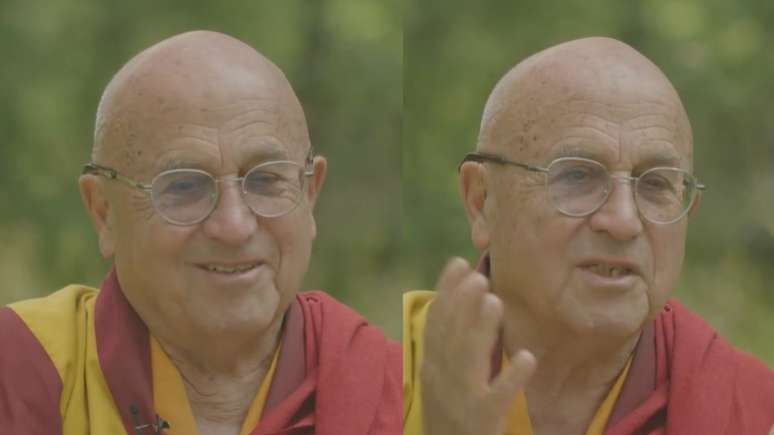In an interview with DW, the Greenpeace spokesperson criticizes Lula’s approval of a law that makes the production and use of pesticides in the country more flexible, despite the government’s actions in defense of the environment and family farming, approved Thursday by President Luiz Inácio Lula da Silva (12/29) bill 1459/2022, which modifies and loosens the rules for the use of pesticides in Brazil. The legislation, defended by members of the ruralist caucus in Congress, is criticized by environmental organizations, who have dubbed the text a “poison package.”
Lula vetoed 14 points of the original text approved by the Senate at the end of November and reported by Senator Fabiano Contarato (PT-ES). Among the new features, the participation of Ibama and Anvisa in the pesticide analysis process awaiting approval was returned – in the approved text, this evaluation was carried out only by the Ministry of Agriculture and Agriculture.
Furthermore, the president also vetoed the temporary registration of new pesticides permitted in member countries of the Organization for Economic Co-operation and Development (OECD) that had not been analyzed within the timeframe required by Brazilian bodies.
The proposal sparked unease among members of the government earlier this year, particularly among the Minister of Agriculture, Carlos Fávaro, and the Minister of the Environment, Marina Silva.
In an interview with DW Mariana Campos, spokesperson for Greenpeace Brazil, says that the bill represents “a set of evils harmful to the environment and the health of the population”. “Several organizations were betting on a total veto from President Lula and he didn’t come,” she says.
Campos underlines that the main obstacles are the permissiveness of substances that cause fetal malformations and mutagenesis, as well as the shorter periods for product evaluation: 60 days for pesticides with formulas identical to others already approved and 24 months for new substances.
“The clash of interests within the government is evident. Speaking specifically about this bill, it is a contradiction. In November, during the Brazilian Congress of Agroecology, the federal government announced the resumption of Pronara, the National Program for reduction of pesticides. The same government went to COP28 with a green agenda and announcing a series of proposals in dialogue with those of the United Nations regarding the long-term sustainability of food systems”, said the Greepeace spokesperson.
He also underlined that the organization must file a lawsuit in the Federal Supreme Court to request the annulment of the new law, since the text would not comply with the provisions of the Constitution. “It is the alternative we have left in the face of a Congress that is making choices that are so harmful to society.”
DW: How do you evaluate the project sanctioned by President Lula?
Mariana Campos: We don’t call this PL the Poison Package for nothing. It is a set of evils harmful to the environment and the health of the population. It is important to remember that, since Senator Fabio Contarato took charge of the report and started this negotiation between Congress and the government, he has tried to make improvements to the text. But this project approved by the Senate at the end of November did not meet our needs and we made this clear. Now several organizations were betting on a total veto by President Lula, but this did not happen. We recognize that there have been some improvements with the vetoes, something like harm mitigation, but there are still very serious problems in this passed law.
What are the main points of concern?
The main thing is the possibility of having carcinogenic and mutagenic substances. Existing legislation prohibited active ingredients that cause serious health problems, such as cancer, fetal malformations and genetic mutations associated with consumption and exposure to pesticides. Now, the approved text uses a fallacious and false argument to guarantee the registration of these substances, citing the term “unacceptable risk” for the population. The project does not present what is “unacceptable risk” or “acceptable risk”. This consumption is acceptable for whom? This is an affront to the health of the Brazilian population.
Another point on which Lula did not veto concerns the deadlines, which have become very rapid, for the registration of pesticides. This speed can compromise the toxicological and environmental evaluation of the products. Furthermore, pesticides are still produced in Brazil only for export. They cannot be used in the country and this is a good thing, but they still represent a danger for those who work with these substances. They are banned, but continue to be handled and this can create a risk for communities around the factories where they are developed or during transport.
Is it possible to challenge the law in the Federal Court?
We intend to file a lawsuit because the legislation violates the rights to a healthy environment, life and public health. There is a legal framework that supports our thesis. It is something that needs a lot of coordination with other entities and political parties. But already from the beginning of 2024 we will strengthen this coordination with the STF. Unfortunately, we will have to take the matter to court, because it is the only alternative we have when faced with a Congress that is making choices that are so harmful to society.
Why is it important to maintain the participation of Anvisa and the Ministry of the Environment in authorizing the use of pesticides?
The power was in the hands of Agriculture, which coordinated all pesticide-related processes. We call the division between Agriculture, Ibama, which represents the Environment, and Anvisa, which represents Health, tripartite, since it works as a balance between the different visions of society, each with its own responsibility and specialty.
The Ministry of Agriculture deals with a world of things relating to the economy, agriculture and a variety of interests. Ibama’s presence serves to ensure environmental protection and prevent any type of setback in this segment. This involves soil, air and water monitoring, which will not necessarily be done by the Department of Agriculture. Anvisa has a similar process, guaranteeing the right to life and health. It is up to you to examine the toxicology of the substances and ensure that the population is not contaminated by the products. Each body will represent a different interest, but always in favor of the interests of society.
What happens, however, is that the Department of Agriculture is involved in political issues, in the strength of agribusiness and in the ruralist group in Congress. If we do not let the other two parties (Ibama and Anvisa) participate equally in this discussion, for example in the reevaluation of the authorization of pesticides, we run the risk of falling into an even bigger hole with reduced environmental and health protection. of the economic aspects.
Are there any other vetoes from the president worth highlighting?
I think it is worth mentioning the process of re-analysis of substances, which is a temporary registration. What ruralists have tried to do is implement a temporary register of pesticides that have not been approved by the deadline. You cannot authorize something that has not been analyzed. This is the precautionary principle that should not be abandoned when it comes to public health.
How does this text reflect controversies within government and Congress over the environmental agenda?
Our assessment is that the Lula government enters this third term with a strong green agenda, and indeed there have been improvements, for example in deforestation. If we compare it to the last few years, we are moving forward. Brazil once again played a role in this affair, including an international one. In terms of agriculture, it is also worth mentioning the revival of important policies, such as the Safra Plan aimed at family farming and the return of the Ministry of Agrarian Development. These are important stages.
That said, the clash of interests within the current government is clear. Speaking specifically about this bill, it is a contradiction. Last month, for example, during the Brazilian Agroecology Congress, the federal government announced the resumption of Pronara, the National Pesticide Reduction Program. This same government came to COP-28 with a green agenda and announcing a series of proposals in dialogue with those of the United Nations regarding the long-term sustainability of food systems. And now approve this Poison Package. It’s a contradiction.
And Congress can overturn the vetoes when it returns from recess next year.
If this happened, it would be a scenario of strong regression in environmental protection and total permissiveness in the use of pesticides in Brazil.
In this context of approvals to make the approval of pesticides more flexible, of clashes with Congress, how should the government act institutionally?
If we talk about Executive action, the antidote is Pronara, because it is the central program to reduce pesticide consumption in the country. We cannot forget that Brazil is the largest consumer of pesticides in the world. Pronara, which provides mechanisms to control water and food contamination, is critical and has been stopped. Reviving this program is essential, also so that the federal government can gain credit towards society without having to talk to Congress.
Furthermore, there are institutional purchasing programs, such as the National School Meal Program and the Food Acquisition Program, which already have support mechanisms for family farming and incentives for agroecological agriculture. Strengthening these mechanisms is an important way to accelerate this transition, which aims to reduce pesticide use. But for this to happen, family farming needs subsidies and technical assistance. These are policies that must be coherent to change the scenario in the coming years.
Source: Terra
Rose James is a Gossipify movie and series reviewer known for her in-depth analysis and unique perspective on the latest releases. With a background in film studies, she provides engaging and informative reviews, and keeps readers up to date with industry trends and emerging talents.




![A Better Life Preview: What’s in store for Wednesday, October 22, 2025 Episode 447 [SPOILERS] A Better Life Preview: What’s in store for Wednesday, October 22, 2025 Episode 447 [SPOILERS]](https://fr.web.img5.acsta.net/img/f8/43/f843493759d61370dcef713a987b0620.jpg)

